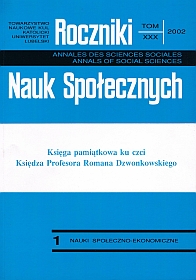Arystoteles a idea demokracji
Abstrakt
Aristotle regarded the state as a natural and self-sufficient society, its aim being common good of all citizens (except slaves and foreigners). This kind of good contains non only economic good, but also moral good including a group of virtues: equality, justice, obedience, and prudence. The work entitled Politics distinguishes three positive political systems: monarchy (the reign of one), aristocracy (the reigns of elites), and politeia (the reigns of many or all). Once these systems aiming at common good are deformed, they become systems carrying out particular interests: tyranny cares about the good of one, oligarchy about the good of elites, and democracy about the good of a people exclusively. An ideal system is politeia characterized by the government of all citizens for the good of the whole population of the country. Aristotle separated many forms of democracy, bering in mind a twofold criterion: juridic-procedural (the number of the roles and a technique of holding the power) and axiological (whether the aim of the state is the good of all, or only the good of some, e.g. the poor). The ancient-Greek thinker valued moderate direct democracy which he understood of the rule of all for the good of all. He was critical, however, about the radical form of democracy, such that assumed the primary role of law before ethics, and considering only the good of the people, that is a part of the citizens of the state.
Copyright (c) 2002 Roczniki Nauk Społecznych

Utwór dostępny jest na licencji Creative Commons Uznanie autorstwa – Użycie niekomercyjne – Bez utworów zależnych 4.0 Międzynarodowe.


